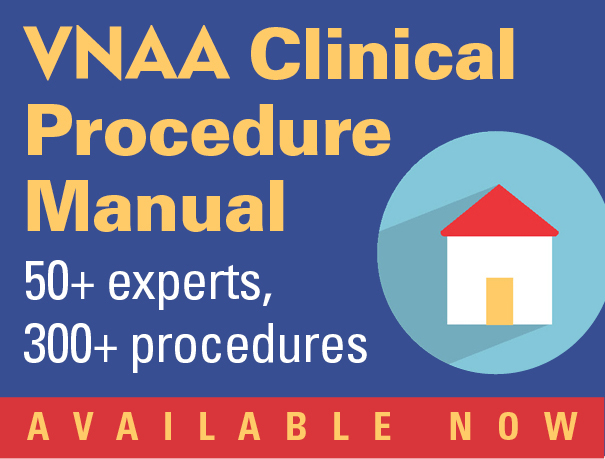|
|
|
Industry News
Florida Gov. Rick Scott sues over Medicaid
Just as he promised, Florida Gov. Rick Scott is suing the Obama administration over Medicaid expansion. The suit alleges that the Department of Health and Human Services is illegally trying to coerce the state into expanding Medicaid eligibility by threatening to end funding for hospitals that care for low-income patients. Federal officials have warned several states, including Florida, that their reluctance to expand Medicaid could cost them special federal funding to treat the uninsured. He's citing the Supreme Court's 2012 ruling in NFIB v. Sebelius, which held that the federal government could not coerce states into expanding Medicaid. "The Court ruled that the President could not use 'gun to the head' approaches in pushing for Medicaid expansion," he says. ( Modern Healthcare; FierceHealthPayer)
Assurant to sell or shutter health insurance operations
Assurant plans to sell or shut down its health insurance division, Assurant Health, which has been active on the health insurance exchanges. Even if it finds a buyer, this will be its last year participating in HIX. Assurant Health is expected to report a first-quarter operating loss of $80 million to $90 million; it lost $64 million last year. "They are a casualty of the ACA," said Steven Schwartz, a Raymond James analyst. (Modern Healthcare; Milwaukee Journal Sentinel)
DeSalvo sets out agenda for interoperability
In a recent blog post, Karen DeSalvo, MD, the National Coordinator for Health IT, shares her view of the health IT landscape and outlines an agenda for interoperability. She identifies three critical pathways. First, "standardize standards." Second, identify the shared expectations and actions around data security and privacy. "And third, we need to incentivize--in a durable and sustainable way--interoperability and the appropriate uses of electronic health information--all with the goal to advance health care and health." (Health Affairs Blog)
New York tries to limit surprise out-of-network fees
New York has enacted legislation that requires insurers and health care providers to give patients more information on out-of-network insurance charges. It also requires insurance plans to meet new standards for improving provider networks, as determined by an independent review board. USA Today highlights the plight of Dana Roberts, who successfully battled a $1,500 out-of-network charge for an anesthesiologist. "If I was told about that, I would have refused and said find somebody in-network." (USA Today)
Medicare to review hospice benefit policy
Under Medicare's current hospice benefit, patients agree to forego curative treatment, but they can receive coverage for health problems unrelated to their terminal illness. But sometimes, Medicare pays for care outside the hospice benefit that it already paid hospice to cover, Kaiser Health News reports. To reduce the chances of these duplicative payments, Medicare officials have announced that they are examining whether to assume "virtually all" the care hospice patients receive should be covered under the hospice benefit. ( Kaiser Health News )
|
|
Innovation & Transformation
NEJM: ACO success many not require financial integration
Medicare's 32 Pioneer ACOs saw modest quality improvements at a marginally lower cost in their first year, according to research published in The New England Journal of Medicine. It estimates the Pioneer program saved Medicare about $116 per beneficiary, or about $118 million in 2012. Savings were similar in ACOs with financial integration between hospitals and physician groups and those without, as well as in ACOs that withdrew from the program and those that did not. This suggests financial integration is not necessary for ACOs to reduce Medicare spending. ( HealthLeaders Media; NEJM)
At a recent conference, pharmacists and insurers urged support of Oregon HB 2028, which would make clinical pharmacists part of interdisciplinary medical care teams. Expanding pharmacists' role beyond dispensing drugs could not only help address workforce shortages, it could save money and lives, says Josh Bishop of PacificSource Health Plans. Failure to properly manage medication is costly. Citing research, The Lund Report notes that $290 billion a year is wasted on mismanaged medication and 1.1 million deaths annually are associated with mismanagement of meds. Intervention by pharmacists also reduces hospitalizations and emergency department visits. ( The Lund Report)
|
Compensation increases, but not satisfaction
Physician compensation has increased modestly compared to last year but satisfaction hasn't, according to Medscape's Annual Physician Compensation Report. The survey of nearly 20,000 physicians across 26 specialties finds that employment status, therapeutic specialty and gender were the key factors affecting compensation. The average primary care physician earns $195,000 per year; the average specialist makes $284,000. Orthopedists, cardiologists and gastroenterologists are the best-paid specialists. Pediatricians and family medicine specialists are worst-paid. Among the specialties, dermatologists were most likely to be content with their careers, but only 25 percent of internists indicated they would choose the same path again. ( HealthLeaders Media; Medscape survey slideshow)
Rather than report, many take PQRS penalty
More physicians are reporting quality data and e-prescribing, but many seem to prefer the penalty for not reporting, Modern Healthcare reports. CMS paid out more than $380 million in incentive payments through its physician quality-reporting system and electronic-prescribing incentive programs, but more than 400,000 providers accepted pay cuts rather than participate. The Physician Quality Reporting System (PQRS), subject to many complaints by physicians, is slated for an overhaul. It's expected to be part of a more cohesive approach to quality reporting and incentives that was part of the SGR repeal. (Modern Healthcare)
Thousands of families with a disabled or deceased parent may have received a lower subsidy than they deserved on the federal HIX as a result of a calculation error by the federal government. Additionally, some who should have been eligible for Medicaid may have been turned away. CMS has acknowledged the problem, but according to Kaiser Health News, details about how the agency will fix it remain unclear. (Kaiser Health News)
|
|
New & Noted
Buying up primary care: Private-equity firms--which in the past have sought out practices with high-reimbursement potential (e.g., dermatology)--are now buying up primary care practices. At least, they are eyeing the ones leading the way in value-based care. Modern Healthcare explores the trend. (Modern Healthcare)
|
Multi-media
Five-part podcast addresses interprofessional training in primary care
In partnership with the National Center for Interprofessional Practice and Education, the Patient-Centered Primary Care Collaborative developed a five-part podcast series based on its publication "Progress and Promise: Profiles in Interprofessional Health Training to Deliver Patient-Centered Primary Care." Following a Q&A format, each chapter provides a deep-dive into three of the seven programs highlighted in "Progress and Promise." (PCPCC podcasts)
|
MarketVoices...quotes worth reading
In the future, "pharmacists will practice at the top of their license, easing demand on primary care providers. Truly, that's where this transformation is going to be." -- Josh Bishop of PacificSource Health Plans, quoted in The Lund Report
|
|
Copyright 2009-2015, H2RMinutes
|
|
|
|
Wednesday, April 29, 2015
|
|

New Colorado RCCO video: Making a Medical Neighborhood Happen
Watch now

|
|
|